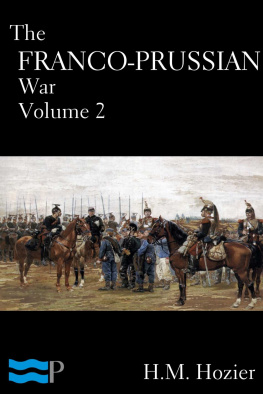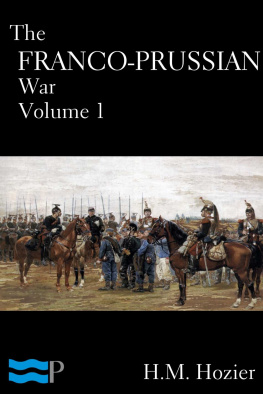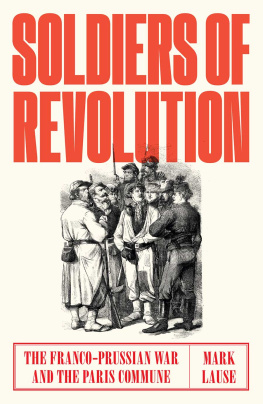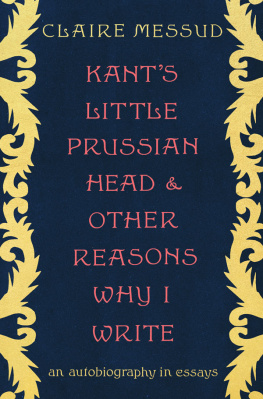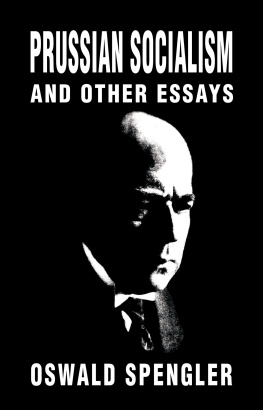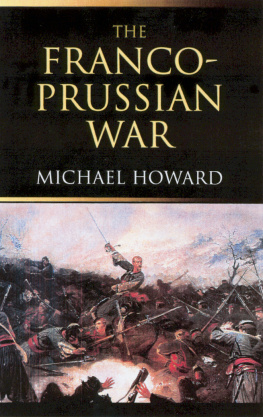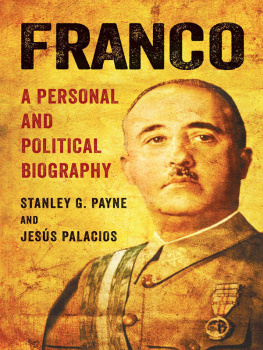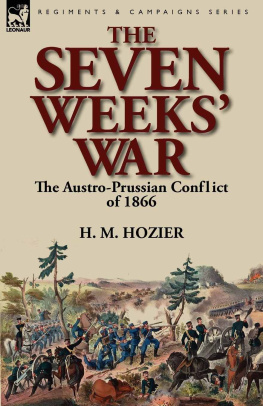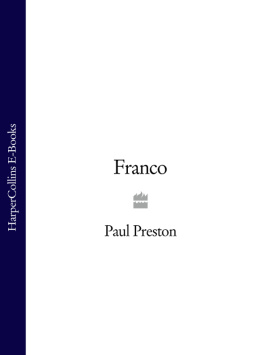H.M. Hozier - The Franco-Prussian War Volume 2
Here you can read online H.M. Hozier - The Franco-Prussian War Volume 2 full text of the book (entire story) in english for free. Download pdf and epub, get meaning, cover and reviews about this ebook. year: 2014, publisher: Pyrrhus Press, genre: Art. Description of the work, (preface) as well as reviews are available. Best literature library LitArk.com created for fans of good reading and offers a wide selection of genres:
Romance novel
Science fiction
Adventure
Detective
Science
History
Home and family
Prose
Art
Politics
Computer
Non-fiction
Religion
Business
Children
Humor
Choose a favorite category and find really read worthwhile books. Enjoy immersion in the world of imagination, feel the emotions of the characters or learn something new for yourself, make an fascinating discovery.
The Franco-Prussian War Volume 2: summary, description and annotation
We offer to read an annotation, description, summary or preface (depends on what the author of the book "The Franco-Prussian War Volume 2" wrote himself). If you haven't found the necessary information about the book — write in the comments, we will try to find it.
The Franco-Prussian War Volume 2 — read online for free the complete book (whole text) full work
Below is the text of the book, divided by pages. System saving the place of the last page read, allows you to conveniently read the book "The Franco-Prussian War Volume 2" online for free, without having to search again every time where you left off. Put a bookmark, and you can go to the page where you finished reading at any time.
Font size:
Interval:
Bookmark:
H.M. Hozier
Pyrrhus Press specializes in bringing books long out of date back to life, allowing todays readers access to yesterdays treasures.
H.M. Hozier wrote one of the most comprehensive histories of the seminal Franco-Prussian War, the late 19th century conflict that helped give rise to the modern nation of Germany. In Volume 2, Hozier covers the rest of the war from the battle of Sedan until the end.
.
Having brought the narrative of the events connected with the war to the surrender of the emperor and his army at Sedan, we suspend the further description of active operations in the field, to glance at the situation of affairs in the French capital, where most important political and other matters had naturally occupied the attention of the authorities and people generally. We shall also, at the same time, briefly notice the feeling manifested in Germany.
In Chapter IX. we described the progress of events and the state of the public mind in the French and Prussian capitals down to the emperors fete day (August 15)a day which had been fixed on by many enthusiastic Frenchmen for the triumphant march of their troops into Berlin! As already stated, the usual festival was not celebrated; and the Parisians suffered keenly from suspense and mortification occasioned by the early disasters of the campaign. The festival of the church, however, was duly honoured. On the day following the festival (August 16) the city was again plunged into a state of the most intense excitement, when it became known that severe fighting had been going on upon the banks of the Moselle, the details of which were, in vain, eagerly sought for; while the excitable disposition of the Parisians was embittered by the minister of the Interior posting a despatch to the effect that some travelers had reported a great battle, in which 40,000 Prussians were placed hors de combat. Taught a lesson by the false news spread after the battle of Woerth, this proceeding of M. Chevreau only served to increase the hostile feeling of the people, whose menaces began to be formidable.
The 17th of August deserves especial notice as the day on which General Trochu, who afterwards played so important a part in the defence of the capital, was appointed governor of Paris. Nothing could have shown more clearly the precarious condition of the empire than this appointment. General Trochu had displayed the qualities of an able soldier and a high-minded gentleman; but his sympathies were professedly Orleanist, and little in accord with the regency of the empress. He had likewise requested of the emperor a command in the army of the Rhine, which was refused. He had, however, been sent to the camp at Toulouse to organize the troops, and was subsequently appointed to the command of the twelfth army corps stationed at the camp at Chlons, whence he was recalled for the defence of the capital.
This general, Louis Jules Trochu, was born in 1815, and educated at the military school of St. Cyr. He was appointed lieutenant in 1840, captain in 1843, and subsequently served in Algeria, where he became the favourite aide-de-camp of Marshal Bugeaud, who had remarked his great bravery at the battle of Isly. He became major in 1846, and colonel in 1853. During the Russian war he served in the Crimea as aide-de-camp to Marshal St. Arnaud, gaining by his gallant conduct at the siege of Sebastopol the commanders cross of the Legion of Honour. After the Marshals death he was promoted to the rank of general, and commanded a brigade of infantry until the end of the war. During the Italian campaign of 1859, which ended with the victory of Solferino, he served with distinction in command of a division. In 1861 he was promoted to the rank of grand officer of the Legion of Honour, having then been in the army twenty-five years, and served in eighteen campaigns, in one of which he was wounded. General Trochu was also elected a member of the consulting committee of the Etat Major, and chosen in the place of his father a member of the Conseil Gnral of Morbihan, in the canton of Belle Isle. In 1866 he helped greatly in the reorganization of the army, and in the following year published anonymously a book entitled The French Army in 1867, which passed through ten editions in six months. In it he severely criticized the organization of the army, and especially the changes introduced into it under the empire, which tended to render the soldiery a caste, severed in interest and feeling from their civilian countrymen. He maintained that its manoeuvres were antiquated, its organization very imperfect, and that the main secret of success in every war was to be more completely prepared for action than the enemy; a theory strikingly exemplified in the Prusso-Austrian war of 1866, and still further verified by the French reverses during the late conflict.
Font size:
Interval:
Bookmark:
Similar books «The Franco-Prussian War Volume 2»
Look at similar books to The Franco-Prussian War Volume 2. We have selected literature similar in name and meaning in the hope of providing readers with more options to find new, interesting, not yet read works.
Discussion, reviews of the book The Franco-Prussian War Volume 2 and just readers' own opinions. Leave your comments, write what you think about the work, its meaning or the main characters. Specify what exactly you liked and what you didn't like, and why you think so.

